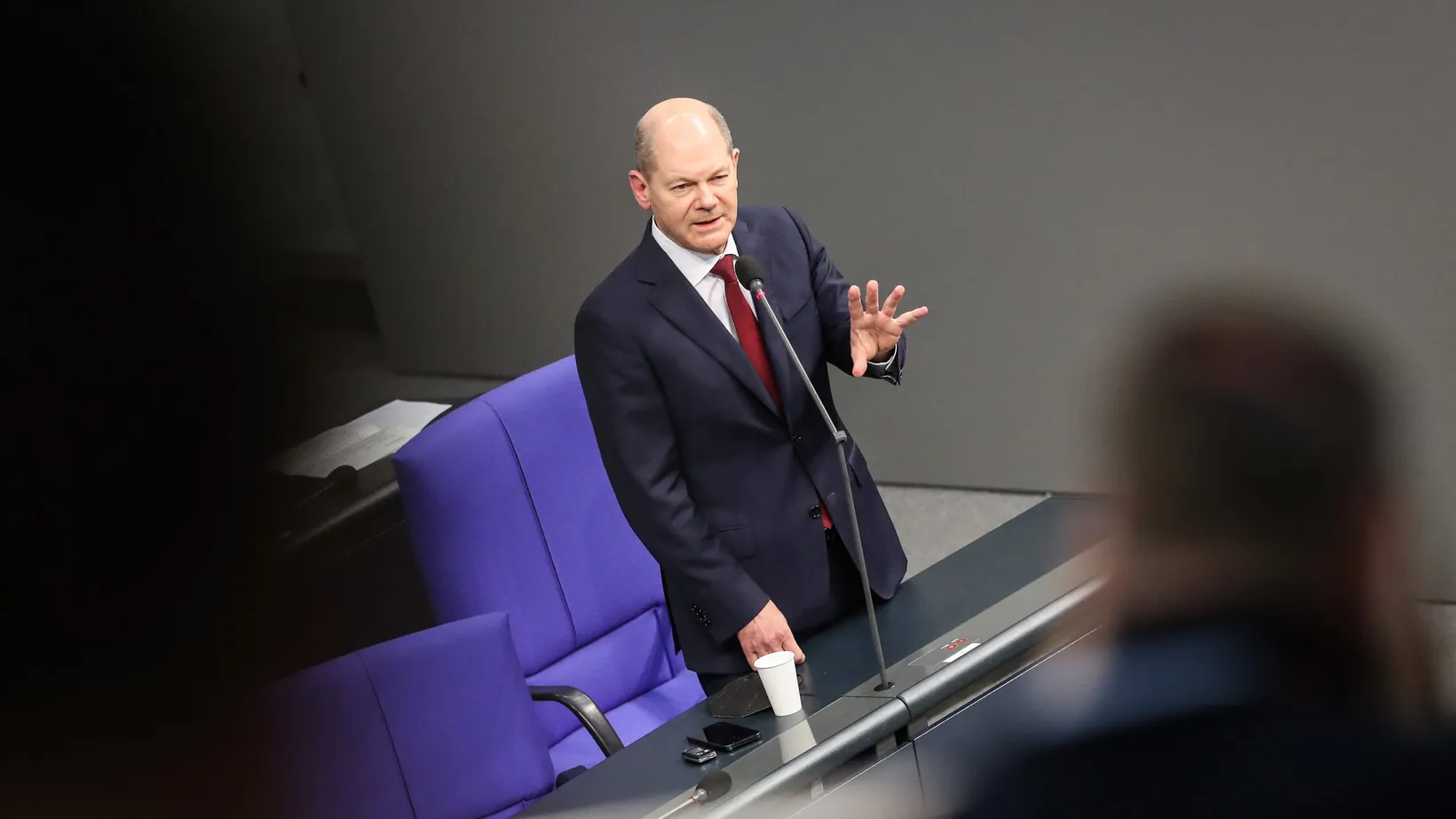THE STATE
Olaf Scholz and the missions of the future
The German finance minister and SPD shadow chancellor presents what big missions the country needs. This sounds a lot like Mariana Mazzucato, who recently applied the concept to Germany in a study for the Forum.
BY
MARC ADAMPUBLISHED
8. FEBRUARY 2021READING TIME
3 MIN
Anyone who wants to know more about what Olaf Scholz exactly means should read up on Mariana Mazzucato. In the study that the team around the renowned London-based economist presented at our New Paradigm Workshop last fall: “Challenge-Driven Economic Policy – A New Framework for Germany.” The basic idea: major changes, e.g. toward climate neutrality in the economy, urgently need a larger concept. A mission co-designed by the state, just like NASA’s moon mission, which crowded in ever new private investment and innovations. According to Mazzucato, Germany has good prerequisites and experience to achieve this, for example with the Kreditanstalt für Wiederaufbau.
Now the best-selling author has just published not only another book, whose sales figures are likely to be heading for the moon due to its topicality, but in a recent article in the Journal Internationale Politik und Gesellschaft she also calls for an effort similar to the moon landing as a concept for getting out of the pandemic.
On Saturday, co-chairman of the SPD, Norbert Walter Borjans, discussed Germany’s industrial policy awakening in a panel of experts. The panel included Jens Südekum, Peter Bofinger, Michael Hüther and Rainer Kattel, who presented the Forum’s study at our workshop.
On Sunday, Olaf Scholz, the candidate for chancellor, presented his ideas on Germany’s economic future at a meeting of the SPD party executive committee. Scholz put four missions on the table:
- making Germany a climate-neutral industrial powerhouse
- building a modern mobility system
- achieving digital sovereignty
- designing a modern healthcare system
A draft resolution is currently being discussed by the party executive committee and will probably be included in the election campaign. The fact that Mariana Mazzucato’s work inspired Scholz’s proposal for a mission-oriented industrial policy does not seem to be a matter of speculation – at least since State Secretary Wolfgang Schmidt came out as a Mazzucato fan.
